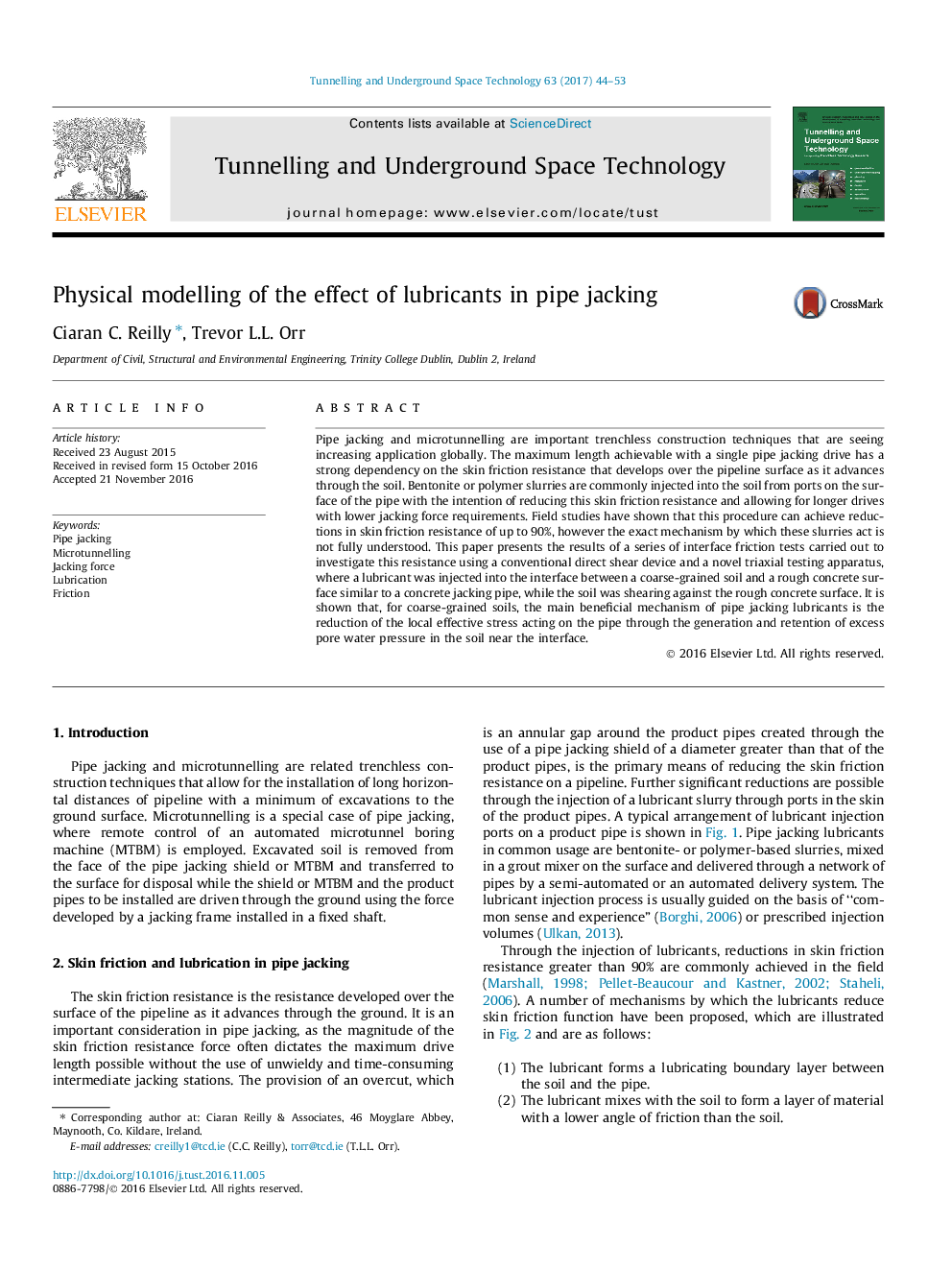| Article ID | Journal | Published Year | Pages | File Type |
|---|---|---|---|---|
| 4929372 | Tunnelling and Underground Space Technology | 2017 | 10 Pages |
Abstract
Pipe jacking and microtunnelling are important trenchless construction techniques that are seeing increasing application globally. The maximum length achievable with a single pipe jacking drive has a strong dependency on the skin friction resistance that develops over the pipeline surface as it advances through the soil. Bentonite or polymer slurries are commonly injected into the soil from ports on the surface of the pipe with the intention of reducing this skin friction resistance and allowing for longer drives with lower jacking force requirements. Field studies have shown that this procedure can achieve reductions in skin friction resistance of up to 90%, however the exact mechanism by which these slurries act is not fully understood. This paper presents the results of a series of interface friction tests carried out to investigate this resistance using a conventional direct shear device and a novel triaxial testing apparatus, where a lubricant was injected into the interface between a coarse-grained soil and a rough concrete surface similar to a concrete jacking pipe, while the soil was shearing against the rough concrete surface. It is shown that, for coarse-grained soils, the main beneficial mechanism of pipe jacking lubricants is the reduction of the local effective stress acting on the pipe through the generation and retention of excess pore water pressure in the soil near the interface.
Related Topics
Physical Sciences and Engineering
Earth and Planetary Sciences
Geotechnical Engineering and Engineering Geology
Authors
Ciaran C. Reilly, Trevor L.L. Orr,
